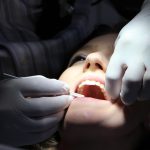YOU CAN RELAX AND ENJOY YOUR VISITS
Countless people allow major and even life threatening damage to occur in their bodies simply because of unreasonable fears of visits to physicians or dentists. Such fears come from false convictions that these visits will involve pain. Some people carry the potentially deadly fear that a visit will produce bad news, living under the inane conception that “what you don’t know won’t hurt you.”
It is not possible even to estimate the number of people who have died simply because, while they knew something was wrong, they did not want the knowledge confirmed by a physician. Many of even the most serious disorders can be halted or cured by early discovery, recognition and treatment. Eliminating the fears of medical attention can effect cures, reduce costs, speed recovery, remove unwarranted apprehensions, minimize family inconvenience and lessen any interruption of income.
Hypnotherapy is the method of choice for achieving the attitude changes necessary to accomplish the reduction or elimination of debilitating fears.
DENTISTS
Fear of a dental appointment is virtually innate. Children have heard tales of unendurable pain suffered (and exaggerated) by other children. Stories and cartoons have featured dental offices as chambers of horrors. Some parents have even threatened children with dental visits as punishment-“If you don’t brush your teeth you’ll have to go to the dentist!” Dentists seem always to get a bum rap. Yet nobody seems to focus on the fact that the greatest expense, and the greatest pain if any occurs at all, usually results from not going to a dentist.
Preventive dentistry exists and for those who practice it the benefits are immeasurable. But many people, children and adults, simply don’t buy the concept. They see only the mentally
visualized “chamber of horrors.” Fears of dentists are among the relatively common phobias seen by psychotherapists and psychiatrists as well as by hypnotherapists.
Increasing numbers of dentists are using hypnosis for pain control in place of or in addition to local anesthesia. Extractions and dental surgery under such conditions are becoming more utilized, with benefits to dentist and patient alike. Many dentists also are using personal training and skills in hypnosis to help patients relax and become more comfortable before any dental work begins, and to provide post-hypnotic suggestions which can make future visits free from fear and even pleasantly anticipated. Some dentists even have hypnotherapists on staff.
These procedures, however, are possible only with the patients who, fearful or not, come to the dental office. For those whose fears are such that they never approach the door, hypnotherapy offers the prospect of removing or reducing the apprehensions and prejudices, achieving relaxation and positive mental attitudes and understanding the benefits of dental care and the risks of avoiding it. Hypnosis can motivate the visit. This is an area for the individual hypnotherapist.
PHYSICIANS
Hypnotherapy is applicable in so many fields of medicine that entire volumes have been written on the subject. One of its most important functions is modifying attitudes-to the point where a reluctant sufferer will seek medical consultation. Another is the reduction or elimination of pre-surgery anxieties. Patients scheduled for surgery, whether for ingrown toenails or cancer removal, come under great stress. Hypnosis is highly effective in stress management. Hypnotherapy further can be a major factor in pain control and expediting recovery.
Every physician and most members of the general public are aware of cases where survival has been ascribed simply to a powerful “will to live.” Development and utilization of the “will to live” is basically a form of self-hypnosis. Likewise, many cases are on record in which the lack of the “will to live” has been designated the cause of a death which physicians deemed should not have occurred.
The amazing capabilities of hypnosis to enhance relaxation, heighten expectation of success and recovery, eliminate negative thinking, control emotions and generate imagery are applicable in virtually all medical situations. In psychiatric cases the power of the mind to uncover causes of problems, attitudes or conditions is utilized through hypnosis.
While hypnosis is not the treatment of choice in many severe mental disorders such as schizophrenia or major depressions, it has been used for virtually anything else, from the bed-wetting episodes of childhood to the control of pain in the arthritis of the elderly, from phobias to sexual maladjustments, from habit control to obstetrics and gynecology and from allergy management to reduction of blood pressure or bleeding control.
Following World War II, hypnosis was found highly effective in treating cases of battle fatigue and post-tramatic stress problems. Traumatic events, whether related to wars, crimes, accidents or other causes, can become incompletely assimilated experiences which haunt victims in forms of anxieties, nightmares and involuntary memories. Hypnosis, as a controlled, voluntary and usual comfortable form of dissociation, allows patients to re-experience traumatic events through a process call revivification, which involves hypnotic regression. Such re-experience enables the victim of post-traumatic stress to achieve a catharsis accompanied by new understanding and relief.
Hypnotherapy has proved highly effective in emergency room medicine, and specifically in burn therapy where suggestions can be given to reduce fluid and electrolyte loss, increase comfort, reduce pain and expedite healing.
In dealing with medical and dental apprehensions, hypnotherapy provides one of its broadest areas of service.
